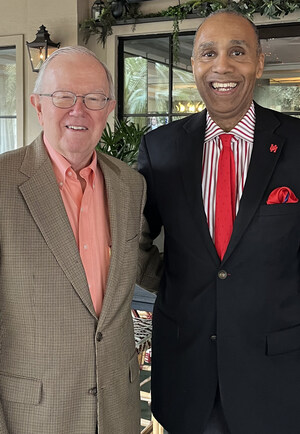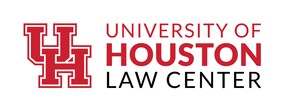HOUSTON, Nov. 9, 2022 /PRNewswire/ -- Roe v. Wade's reversal, by way of the Supreme Court's Dobbs decision, inadvertently drew attention to the work of consumer health technology researcher Leah Fowler, Research Assistant Professor at the University of Houston Law Center's Health Law & Policy Institute.
"I'm really interested about where consumer health technologies we use every day intersect with the law," said Fowler. "There's a breakdown in how people understand their rights and what their rights actually are."
Specifically, Fowler's research examines the accuracy, efficacy, and privacy of healthcare technology — including femtech tools such as period and fertility tracking apps. Femtech products are defined as a category of consumer technologies that address an array of "female" health needs.
Fowler's expertise on this front has been much sought after following the June 2022 Supreme Court decision that prompted widespread concerns about the security and privacy of femtech. For instance, following the Dobbs v. Jackson Women's Health Organization ruling, calls for users to delete their femtech apps started popping up across the internet.
Period and fertility tracking apps hold some of the most "wildly intimate" information about the human body, according to Fowler, from the date of a user's last menstrual cycle to an ovulation window, even including further details that could point to a potential or past pregnancy. In the wrong hands, some advocates say this information could be used against consumers, especially in regions where individuals aiding or performing abortions have the potential to be sued by private citizens.
Fowler's forthcoming work Femtechnodystopia, in partnership with Michael R. Ulrich of Boston University School of Public Health, concentrates precisely on this intersection, imagining a multifaceted approach to safeguarding the benefits of femtech from the potential harms in a post-Roe world.
While Fowler's scope of research extends beyond the femtech realm, she said that this subset of healthcare technologies may be garnering more attention because they "[make] concrete a lot of the issues that are common across health technology."
So, is it time to delete femtech apps? Not necessarily. It depends on the product, Fowler said, adding that she hesitates to advise people to delete an app they find useful, "especially in the absence of evidence these are being currently used to prosecute people."
Generally, it can be more helpful to conduct a cost-benefit analysis of "how much utility does this product give you versus what are you willing to give up in exchange for it." Additionally, Fowler recommends checking privacy policies for phrases like "does not engage in third-party sharing" or "data stored on device" instead of in a cloud.
"Whatever calculus you're making for a period and fertility tracking app, take that same type analysis to other apps you download to your phone and every other type of technology you use," Fowler said.
University of Houston Law Center media contacts: Carrie Anna Criado, UH Law Center Assistant Dean of Communications and Marketing, 713-743-2184, [email protected]; Bonnie Buffaloe, Communications Manager, 713-743-9137, [email protected].
The University of Houston Law Center (UHLC) is a dynamic, top tier law school located in the nation's 4th largest city. UHLC's Health Law, Intellectual Property Law, and Part-time programs rank in the U.S. News Top 10. It awards Doctor of Jurisprudence (J.D.) and Master of Laws (LL.M.) degrees, through its academic branch, the College of Law. The Law Center is more than just a law school. It is a powerful hub of intellectual activity with more than 15 centers and institutes which fuel its educational mission and national reputation. UHLC is fully accredited by the American Bar Association and is a member of the Association of American Law Schools.
The University of Houston is a Carnegie-designated Tier One public research university recognized with a Phi Beta Kappa chapter for excellence in undergraduate education. UH serves the globally competitive Houston and Gulf Coast Region by providing world-class faculty, experiential learning and strategic industry partnerships. Located in the nation's fourth-largest city and one of the most ethnically and culturally diverse regions in the country, UH is a federally designated Hispanic- and Asian-American-Serving institution with enrollment of more than 47,000 students.
SOURCE University of Houston Law Center

WANT YOUR COMPANY'S NEWS FEATURED ON PRNEWSWIRE.COM?
Newsrooms &
Influencers
Digital Media
Outlets
Journalists
Opted In




Share this article